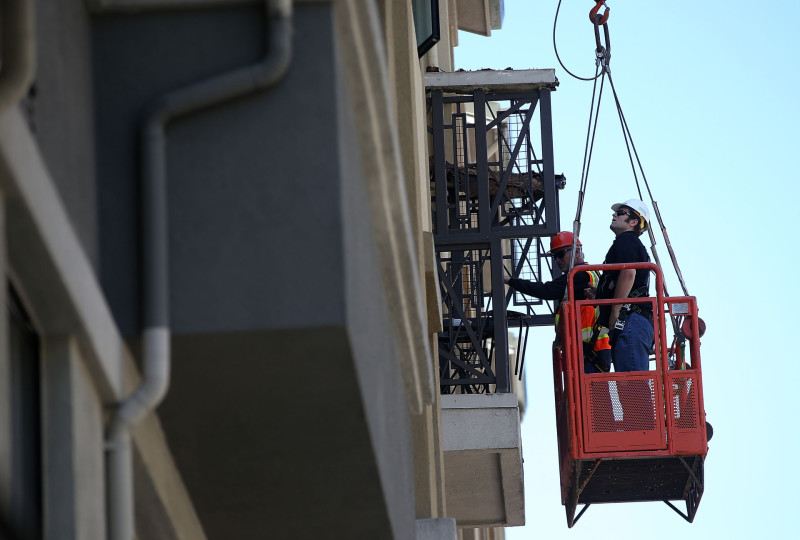All those killed and injured, 13 people in all, are believed to have been standing on the balcony when it collapsed. It's unknown what their total weight was, but Josh Kardon, a structural engineer KQED interviewed Tuesday, said the balcony would have been close to capacity.
"I did a real quick, off-the-top-of-my-head at what the unit load -- the square-foot load -- on the balcony was with 13 21-year-olds on it, and it was about in the same order of magnitude as the design load the balcony very well may have been designed for," Kardon said. "The balcony shouldn't have collapsed if all it was subjected to was the weight of 13 people."
Kardon allowed that activity on the balcony -- dancing or jumping with a large load present -- "would certainly have an effect and an influence on its performance."
Kardon added that the Berkeley tragedy is "the kind of incident that affects a practicing engineer's daily operations. ... I'm always aware of, 'How is this thing going to fail, and how do I prevent that?'"
Engineers consulted by other media organizations have declared rather firmly that water exposure and dry rot are the root causes of the balcony collapse.
From the Bay Area News Group:
The deck showed a "deficiency in the design" said Tony Childress, owner of Texas-based Childress Engineering Services. He questioned the entire deck connection to the residential apartment building at 2020 Kittredge St. ...
... Childress said it was clear that water had reached the wood. "You can see the rotting," he said, after reviewing detailed photos of the damage with others in his failure-analysis firm at the request of the Bay Area News Group.
"This is a situation where a deficiency in the design allowed for moisture to seep in," he said. Childress' conclusion also raises questions about the city's review of the plans and construction.
Gene St. Onge is an Oakland structural engineer who has spoken to several media outlets. Here's his take, as reported by Berkeleyside:
Experts around the state who have looked at photographs of the fallen balcony all point to wood rot as the cause of the collapse. And while their thoughts should be considered speculative, the consensus is that water seeped behind the balcony, rotting the wooden beams holding up the structure.
And the sight of what remained of the balcony that sheared off the wall Tuesday morning was shocking: pieces of decaying beam dotted with a white substance that some speculated might be mold.
Gene St. Onge, an Oakland civil and structural engineer, said water seepage appears to have been the cause of the balcony collapse. It was probably caused by improperly applying the waterproofing system, he said.
“Water should not get in there, that is why the waterproofing system and application is so critical,” St. Onge told Berkeleyside. “If it’s done right, my guess is this wouldn’t have happened at all.”
Berkeley Mayor Tom Bates added his voice to the chorus focusing on water and dry rot. From the Associated Press:
"More than likely it was caused by rain and caused by water damage that was done to the support beams," Bates said. He said it was "obviously a bad idea" for 13 people to crowd onto such a small balcony but added that he is not blaming the victims.
Later in the day, however, the mayor said that the water-damage theory was speculation on his part and not an official conclusion, and that the investigation is still underway.
The AP also reported that the contractor that built Library Gardens has been sued over balcony defects in the past:
Segue Construction, the Library Gardens general contractor, was involved in two San Francisco Bay Area lawsuits in recent years involving allegations of dry rot and substandard balconies at condo and apartment projects in Millbrae and San Jose. Among other things, Segue was accused of improperly waterproofing balconies.
Both cases were settled in 2013 with Segue, developers and other parties agreeing to pay millions.
Segue spokesman Sam Singer said such litigation is common on large projects and "has no bearing on the tragedy in the Berkeley."
"They are completely different projects. They are completely different types of balconies," he said. Singer said of the balcony collapse: "Segue Construction has never had an incident like this in its history."
